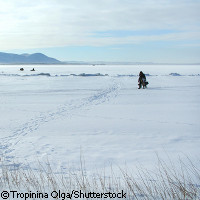EU shines spotlight on Arctic, targets new policy
The European Commission has adopted a Communication on 'The European Union and the Arctic Region' outlining the EU's interests and policy objectives, which include energy resources, fisheries and new shipping routes. The region has increasingly been in the spotlight as a result of its rich resources that could help ease Europe's headaches about energy security. For their part, environmental groups have repeatedly issued warnings on how global warming and climate change, as well as human activities, are affecting the Arctic. This paper, says the Commission, is the first step towards an EU Arctic Policy and will be instrumental in shaping and implementing the EU's Integrated Maritime Policy. In an accompanying statement, Commissioner Benita Ferraro-Waldner remarked, 'The Arctic is a unique and vulnerable region located in the immediate vicinity of Europe. Its evolution will have significant repercussions on the life of Europeans for generations to come.' By fuelling its contribution in the region, the EU will be able to strengthen its many partnerships with countries in the Arctic, said the Commissioner responsible for External Relations and European Neighbourhood Policy. 'The EU is ready to work with them to increase stability, to enhance Arctic multilateral governance through the existing legal frameworks as well as to keep the right balance between the priority goal of preserving the environment and the need for sustainable use of natural resources including hydrocarbons,' she underlined. The Commission noted that EU policies that impact the world at large also affect the Arctic. Commissioner in charge of the Maritime Affairs and Fisheries Joe Borg said, 'We cannot remain impassive in the face of the alarming developments affecting the Arctic climate and, in consequence, the rest of our planet. On the other hand, the combination of the climatic changes and the recent technological developments opens up new opportunities interlaced with challenges.' Because EU policies covering a myriad of areas like environment, energy, research and transport affect the Arctic, a coordinated action is needed, Commissioner Borg commented. 'The Integrated Maritime Policy can provide a much needed collaborative platform.' The Communication outlines three main policy objectives: improving Arctic multilateral governance, safeguarding the Arctic in unison with its population; and supporting the sustainable use of resources. The Commission believes these objectives will be achieved through the implementation of several proposals. This includes the Commission contributing more to the Arctic Council by becoming a permanent observer, making sure Arctic issues are placed higher on the international agenda, as well as promoting the implementation of existing rules and improving environmental and safety standards of the International Maritime Organisation. The Commission asserts that an EU Arctic policy will work well with the Integrated Maritime Policy, particularly as the latter targets the coordination of all maritime-related EU policies.



